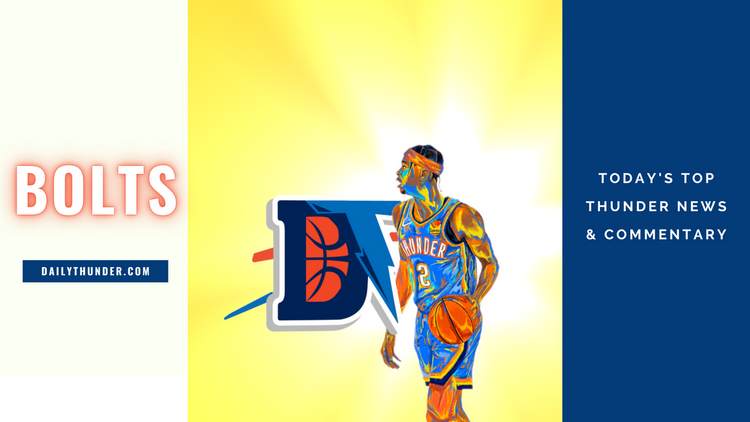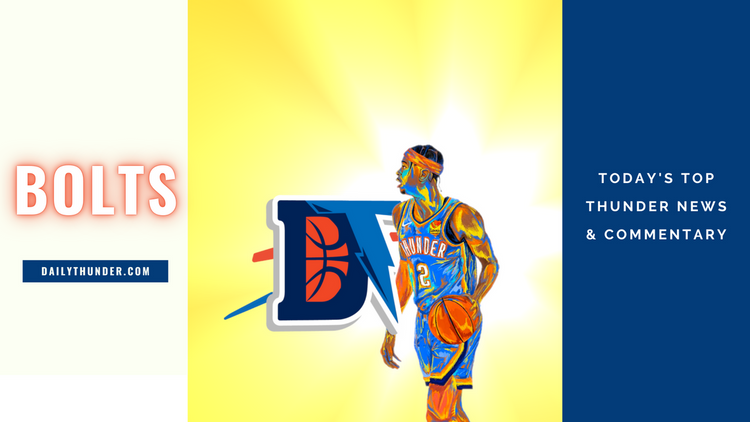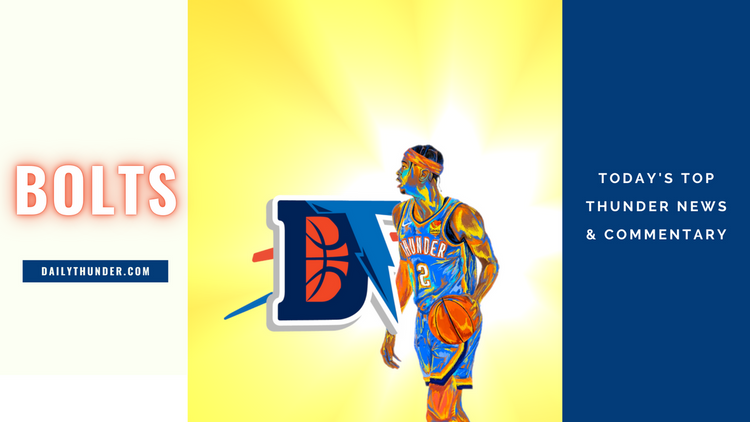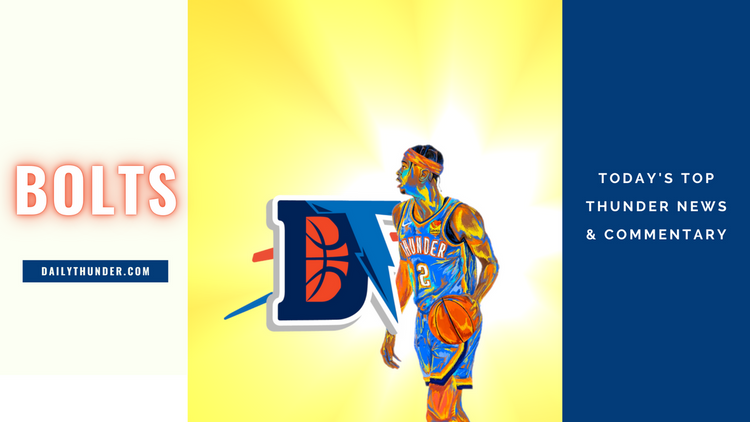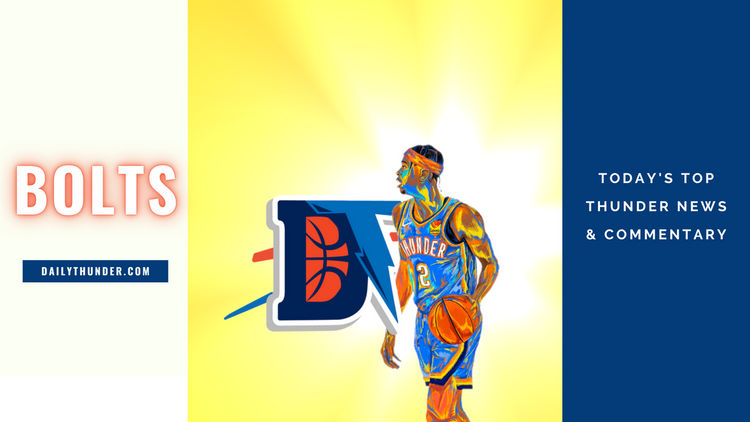Monday Bolts – 3.5.12


Quite an excellent piece from Brian Phillips of Grantland: “Of course, it’s possible that I’m getting ahead of myself even in getting ahead of myself. This is the kind of stuff fans worry about when things are going well. The Thunder have been an elite team for two seasons now, and while they still have an aura of newness about them, it’s finally starting to feel like some tough things are expected. There’s a bar now that they can’t clear just by showing up. Maybe what I’m really feeling here isn’t worry about Durant and Westbrook at all; maybe I’m caught in the vague anxiety of one of the hardest transitions, for both players and fans, in sports. Like the Thunder, I now have something to lose.”
Bethlehem Shoals for GQ on James Harden: “We’re often been told that any issues between Westbrook and Durant are largely a creation of the press, and yet it’s impossible to not think back on some of their more uncomfortable games together and wonder how, no matter how much these two genuinely like each other, they could ever play together in a way that made sense. Harden, simply by becoming a force in his own right, has changed OKC’s identity from a two-star system to an exercise in firepower. He’s permeable enough to help mediate KD and Russ’s on-court relationship. But James Harden can also grab the ball and score in a way that demands respect. It’s sobering, really, and also helps dispel some of the desperation that had the Thunder’s two stars locked in bad habits.”
KD has a backpack. LeBron has a purse.
Probably the best Lazar Hayward sign you’re going to see.
Darnell Mayberry on how losses are getting harder to take: “Kevin Durant didn’t feel like answering questions. The star forward for the Oklahoma City Thunder who typically goes out of his way to be accommodating suddenly didn’t really want to speak. Following his team’s 97-90 loss at Atlanta on Saturday, Durant kept all responses in his postgame interview to a minimum. The frustration heard in his tone and seen in his body language gave the impression there was something bigger in play than just disappointment with one loss in early March. And there was. Durant was struggling to cope with the foreign feeling of losing.”
Chris Bernucca of Sheridan Hoops on OKC’s toughness: “When the playoffs arrive, opponents will scheme to take away a portion of Oklahoma City’s offense, and it will be pretty easy. Because Durant, Westbrook and Harden are so skilled, the Thunder rely heavily on clear-outs, simple pick-and-rolls and jumpers. The offense will inevitably stall at times, as it did in last year’s playoffs. This time, the Thunder seem better equipped to handle those stretches – as long as their aggression is not misplaced.”
Lazar Hayward has been recalled after averaging 28 points a game in Tulsa.
Ric Bucher ranks his top five point guards.
David Aldridge of NBA.com on Scott Brooks’ contract: “There’s no indication that Presti is looking for a coaching “closer” in the Phil Jackson mold to finish the job in OKC. That would be a major gamble, as only Jackson, Rudy Tomjanovich, Gregg Popovich, Larry Brown, Pat Riley, Doc Rivers and Rick Carlisle have coached teams to NBA titles in the last two decades. Jackson is happily ensconced in Idaho; Tomjanovich has shown no interest in returning to coaching; Brown is 71 and still willing, but would cost a fortune; Riles says his coaching days are over, and Popovich, Rivers and Carlisle are, as far as I know, happily employed elsewhere.”
Zach Lowe of SI on OKC’s defense in crunch-time: “But they appear to exercise a bit more caution and smarts at the end of close games. And the Thunder big men, especially Kendrick Perkins and Serge Ibaka, often play with a higher aggression level in pursuing ball-handlers far from the hoop on pick-and-roll plays. They’ll sometimes even play something like a strong-side zone, leaving their man entirely in order to clog up driving lanes on the strong side of the floor. That strategy carries risk, since two Thunder defenders are occupied with one opposing guard 20 feet from the rim, and one of their bigs has moved himself out of ideal rebounding position. But it can also lead to turnovers, crisis jumpers and guards picking up their dribble instead of pursuing an offensive set to its completion.”

